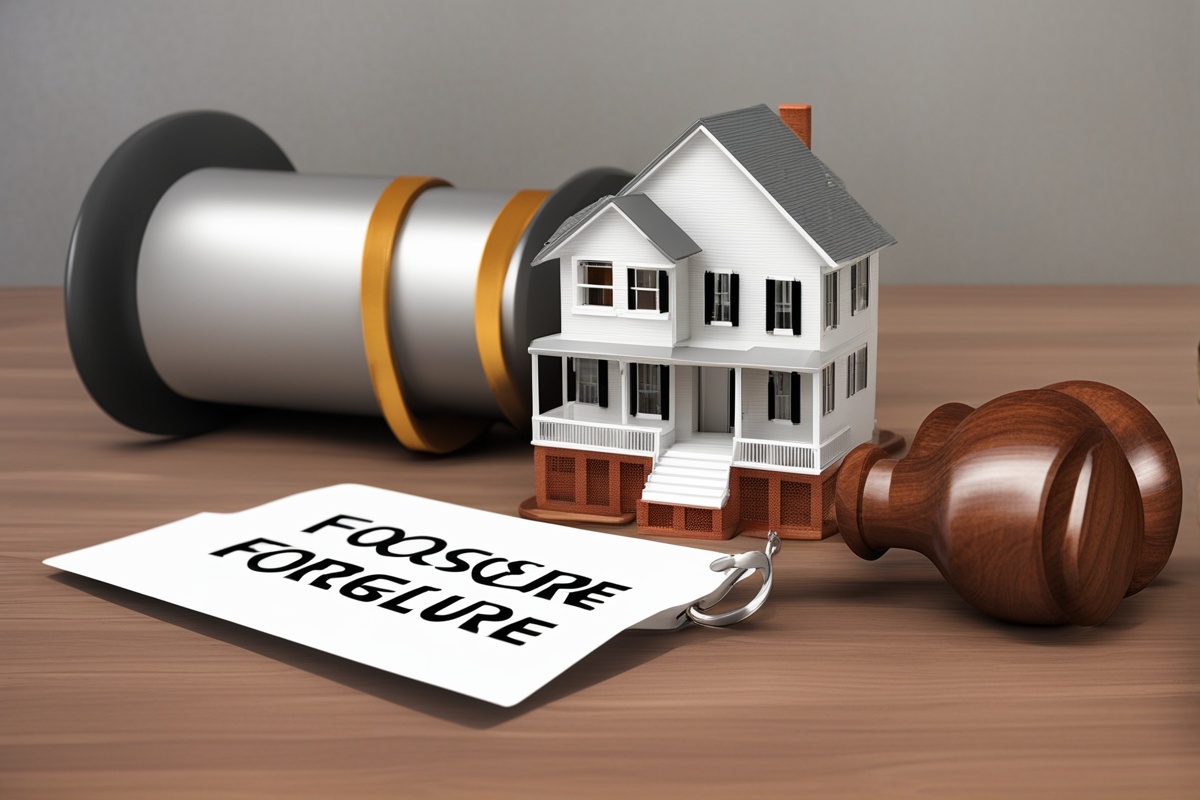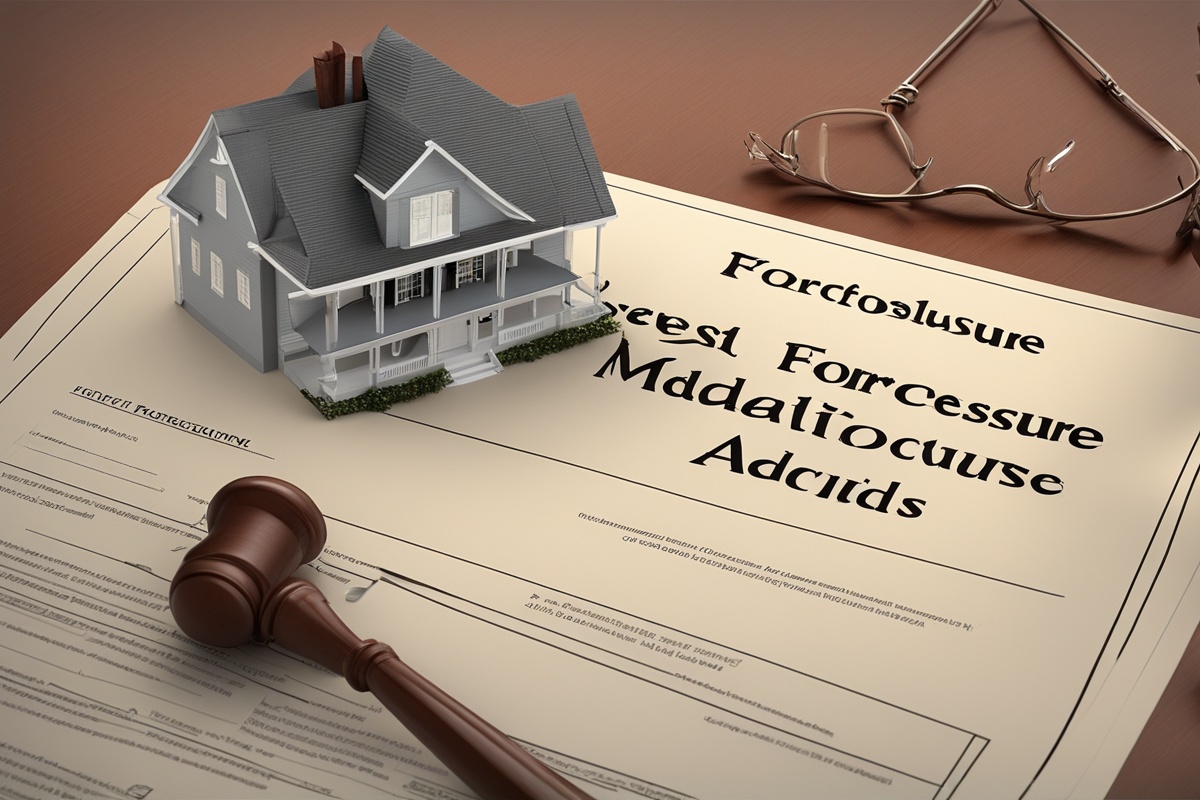Losing a home to foreclosure is a devastating experience, but there are pathways to mitigate the impact and find viable solutions. Navigating home loss solutions requires understanding the available options, legal processes, and support systems designed to help homeowners during this challenging time. One of the most effective tools in this journey is foreclosure mediation, a process that facilitates communication between homeowners and lenders to explore alternatives to foreclosure. In this comprehensive guide, we’ll dive into the key aspects of navigating home loss solutions, with a focus on how mediation can play a pivotal role in preserving your financial stability and peace of mind.
Understanding Foreclosure and Its Impact
Foreclosure is a legal process through which a lender repossesses a property due to the homeowner’s inability to keep up with mortgage payments. The emotional and financial toll of losing a home can be overwhelming, often leading to stress, damaged credit, and uncertainty about the future. Navigating home loss solutions starts with recognizing the gravity of foreclosure and the urgent need to act before the process is finalized. Homeowners must be proactive in seeking assistance, whether through legal counsel, financial advisors, or mediation programs offered by state or local governments.
The impact of foreclosure extends beyond the loss of a home. It can affect your ability to secure future housing, loans, or even employment in some cases. Understanding the stakes involved is the first step toward finding a resolution that minimizes long-term damage.
What Is Foreclosure Mediation?
Foreclosure mediation is a structured negotiation process designed to help homeowners and lenders reach a mutually beneficial agreement to avoid foreclosure. This process typically involves a neutral third party, known as a mediator, who facilitates discussions between the two parties. The goal of navigating home loss solutions through mediation is to explore alternatives such as loan modifications, repayment plans, or even a graceful exit from the property through a short sale or deed in lieu of foreclosure.
Mediation programs are often mandated or encouraged by state laws, especially in areas hardest hit by housing crises. These programs provide a safe space for homeowners to present their financial situation and work collaboratively with lenders to find a solution. If you’re facing foreclosure, check if your state offers a mediation program by visiting resources like the Foreclosure Resources page on our site.
Benefits of Navigating Home Loss Solutions Through Mediation
Opting for foreclosure mediation offers several advantages for homeowners struggling to keep their property. First and foremost, it provides an opportunity to avoid the harsh consequences of foreclosure, such as a significant hit to your credit score or the loss of equity in your home. By navigating home loss solutions through mediation, you may be able to secure a loan modification that lowers your monthly payments or extends the loan term to make it more manageable.
Additionally, mediation can save time and money compared to lengthy court battles. It fosters open communication, allowing both parties to address misunderstandings or disputes directly. For many, the process also offers emotional relief by providing clarity and a structured path forward. To learn more about the emotional aspects of foreclosure, check out our guide on Coping with Foreclosure Stress.
Steps to Prepare for Foreclosure Mediation
Preparation is key when navigating home loss solutions through mediation. Before entering the process, gather all relevant financial documents, including income statements, bank records, and mortgage statements. These documents will help the mediator and lender understand your current situation and determine feasible solutions. It’s also wise to consult with a housing counselor or attorney to ensure you’re fully informed of your rights and options.
Next, outline your goals for the mediation. Are you hoping to stay in your home through a loan modification, or are you seeking a way to exit the property without a foreclosure on your record? Having a clear objective will guide the conversation and keep the process focused. Finally, familiarize yourself with the mediation rules and timelines in your state. Resources like our State Foreclosure Laws page can provide valuable insights into local regulations.
Alternatives to Foreclosure Explored in Mediation
One of the primary goals of foreclosure mediation is to identify alternatives to foreclosure that work for both the homeowner and the lender. Navigating home loss solutions often involves exploring options like loan modifications, which adjust the terms of your mortgage to make payments more affordable. Other possibilities include forbearance agreements, where payments are temporarily paused, or repayment plans that allow you to catch up on missed payments over time.
In cases where staying in the home isn’t feasible, mediation can help negotiate a short sale, where the property is sold for less than the mortgage balance with the lender’s approval, or a deed in lieu of foreclosure, where the homeowner voluntarily transfers ownership of the property to the lender. These alternatives can help avoid the long-term negative effects of a foreclosure on your credit report. For a deeper dive into these options, explore our article on Foreclosure Alternatives.
Challenges and Considerations in Foreclosure Mediation
While foreclosure mediation offers hope, it’s not without challenges. Navigating home loss solutions through this process requires patience, as negotiations can take time and may not always result in an agreement. Lenders are not obligated to accept proposed solutions, and some homeowners may find that their financial situation is too dire for viable alternatives. Additionally, mediation programs often have strict eligibility requirements and deadlines, so it’s critical to act quickly and ensure you qualify.
Another consideration is the potential cost of mediation, as some programs charge fees, though many are free or subsidized. Homeowners should also be prepared for the emotional strain of discussing personal financial struggles in a formal setting. If you’re unsure whether mediation is right for you, consider reading our post on Is Foreclosure Mediation Right for You? for additional guidance.
Disclaimer: The information provided in this article is for general informational purposes only and does not constitute legal, financial, or professional advice. Navigating home loss solutions, including foreclosure mediation, can vary widely based on individual circumstances, state laws, and lender policies. We strongly recommend consulting with a qualified attorney, housing counselor, or financial advisor to address your specific situation before making any decisions. The authors and publishers of this content are not responsible for any actions taken based on the information provided herein.
References
- U.S. Department of Housing and Urban Development (HUD) – Avoiding Foreclosure
- Consumer Financial Protection Bureau (CFPB) – What is Foreclosure Mediation?
- Nolo – Foreclosure Mediation Programs
- Federal Reserve – Foreclosure Resources for Consumers
- National Center for State Courts (NCSC) – Foreclosure Mediation
This content is for informational purposes only and not a substitute for professional advice.





